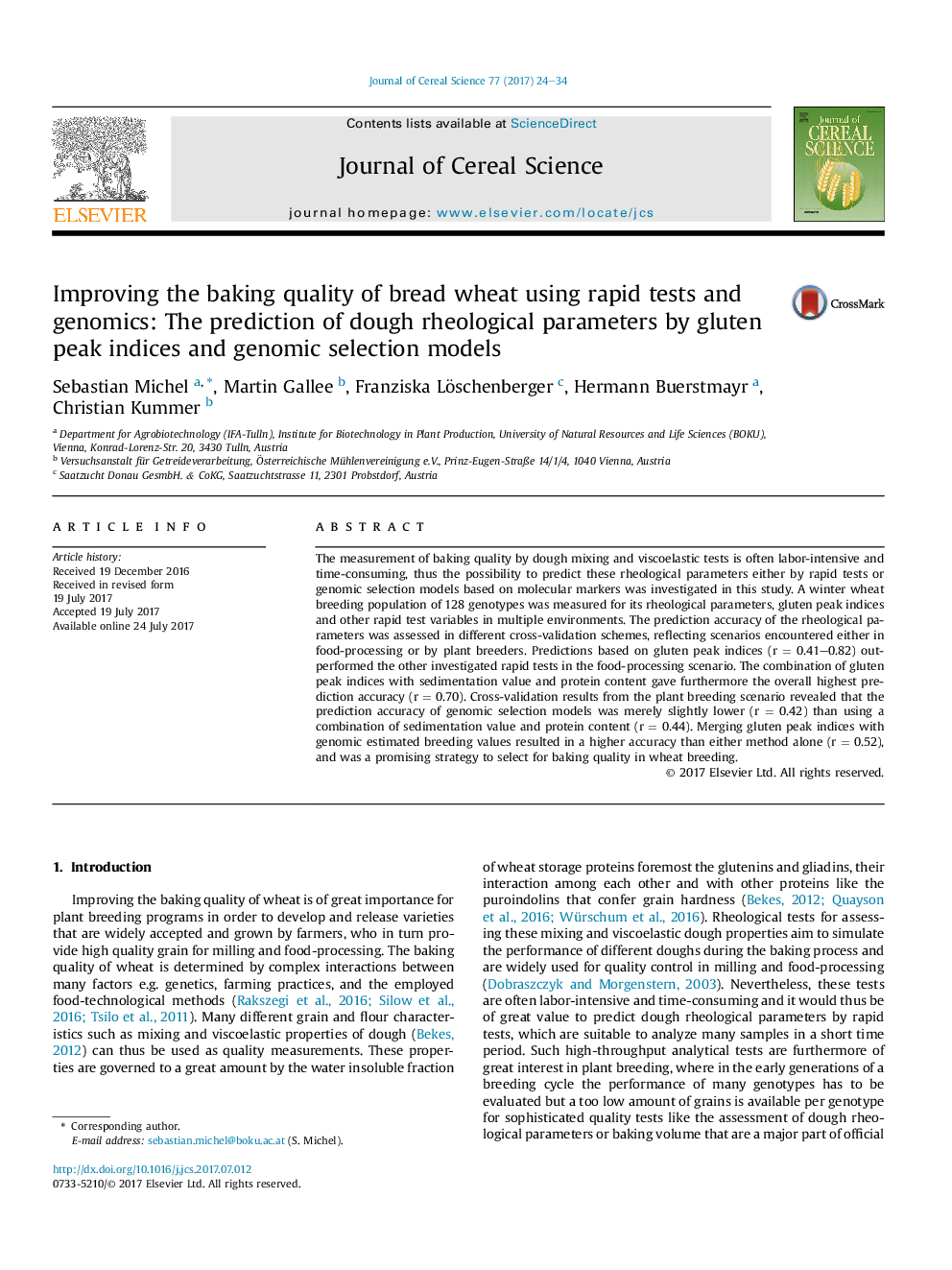| Article ID | Journal | Published Year | Pages | File Type |
|---|---|---|---|---|
| 5762398 | Journal of Cereal Science | 2017 | 11 Pages |
Abstract
The measurement of baking quality by dough mixing and viscoelastic tests is often labor-intensive and time-consuming, thus the possibility to predict these rheological parameters either by rapid tests or genomic selection models based on molecular markers was investigated in this study. A winter wheat breeding population of 128 genotypes was measured for its rheological parameters, gluten peak indices and other rapid test variables in multiple environments. The prediction accuracy of the rheological parameters was assessed in different cross-validation schemes, reflecting scenarios encountered either in food-processing or by plant breeders. Predictions based on gluten peak indices (r = 0.41-0.82) outperformed the other investigated rapid tests in the food-processing scenario. The combination of gluten peak indices with sedimentation value and protein content gave furthermore the overall highest prediction accuracy (r = 0.70). Cross-validation results from the plant breeding scenario revealed that the prediction accuracy of genomic selection models was merely slightly lower (r = 0.42) than using a combination of sedimentation value and protein content (r = 0.44). Merging gluten peak indices with genomic estimated breeding values resulted in a higher accuracy than either method alone (r = 0.52), and was a promising strategy to select for baking quality in wheat breeding.
Related Topics
Life Sciences
Agricultural and Biological Sciences
Agronomy and Crop Science
Authors
Sebastian Michel, Martin Gallee, Franziska Löschenberger, Hermann Buerstmayr, Christian Kummer,
